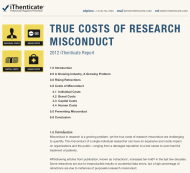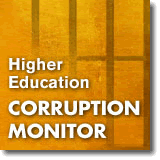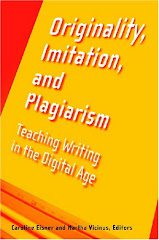This isn't a defense of Jonah Lehrer in the sense of arguing that he's blameless for his fairly egregious pattern of "self-plagiarism" (or, as he might prefer to put it, his pattern of "high-fidelity recycling"). And I'm not addressing at all Lehrer's alleged instance of actual plagiarism, which is a much more serious matter. My only point is that the current journalistic environment encourages recycling, and renders his misdeeds less surprising than they'd have been in, say, 1987, when I was his age and had never heard the word "internet".
There are basically three new factors at play:
1) More than before, success in journalism is about sheer quantity of output. In 1987 if you named the top young (say, under age 35) pundits and essayists, a number of them were people averaging maybe 1,000 or 1,500 words a week of output, perhaps in the form of a single weekly column. Now the young superstars average more like 5,000, even 10,000 words a week, broken up into 10, 20, 25 pieces. If you're young and you want to keep getting noticed, you've pretty much got to produce at this volume, unless you're sitting at one of the handful of remaining elite perches (The New Yorker, The New York Times)--and even at these places, quantitative expectations are rising as writers like Ross Douthat, Paul Krugman, and Hendrik Hertzberg blog in addition to doing their traditional writing. (And if you are going to try to get by on merely a couple of thousand words a week, you'd better get at least another 1,500 words onto Twitter to make up for it.)
2) As quantitative expectations rise, and the old revenue model of journalism continues to melt, pay-per-word drops. If Slate's Matthew Yglesias was getting paid the effective per-word rate I got when I wrote a column for Slate upon its launch in 1996, he'd be making over a million dollars a year. Judging by his position on tax breaks for the rich, he's not.
2) As quantitative expectations rise, and the old revenue model of journalism continues to melt, pay-per-word drops. If Slate's Matthew Yglesias was getting paid the effective per-word rate I got when I wrote a column for Slate upon its launch in 1996, he'd be making over a million dollars a year. Judging by his position on tax breaks for the rich, he's not.
3) As the above two factors have strengthened the incentive to recycle your work, the ethos of the web has made old lines blurrier and has made recycling seem less obviously wrong. Every day blog posts appear in the Huffington Post that also appear on one, two, three other sites. Do all of the versions of the post mention all the other versions? Sometimes, sure. But it's not like anyone throws a fit when they don't.
This isn't a lament. I doubt the old world of journalism was any better for society than the new world of journalism, and it was probably worse.
To be sure, the new emphasis on quantity means that a lot of low quality stuff gets produced (some of it by me, as you may have noticed!--though by current standards I'm not a high-volume producer). For that reason, among others, I'd probably feel more comfortable living in a world where you're expected to produce one or two polished, well-thought-out columns per week, columns that have benefited from editorial feedback.
But maybe I just need to heed the advice of Felix Salmon. Writing about the Lehrer case, he suggests that the problem lay in Lehrer's thinking of every blog post as the vehicle for delivering a fully formed idea. Better to think of a blog post as just a snapshot of the process of your thinking something through, says Salmon. Blogs should be "wonderful tools for generating ideas, rather than being places where your precious store of ideas gets used up in record-quick time."
Or, as my Atlantic colleague Ta-Nehisi Coates put it:
"Journalism is hard, and a writer focused only on the end-product--on the reveal, on the key insight--is going to struggle. There should be some excitement about the hunt, about having your assumptions overturned and blown up. There should be some love for the process. The baker can't simply live for the look of amazement on the faces of those who behold his latest creation. There has to be some joy in actually baking the cake."







